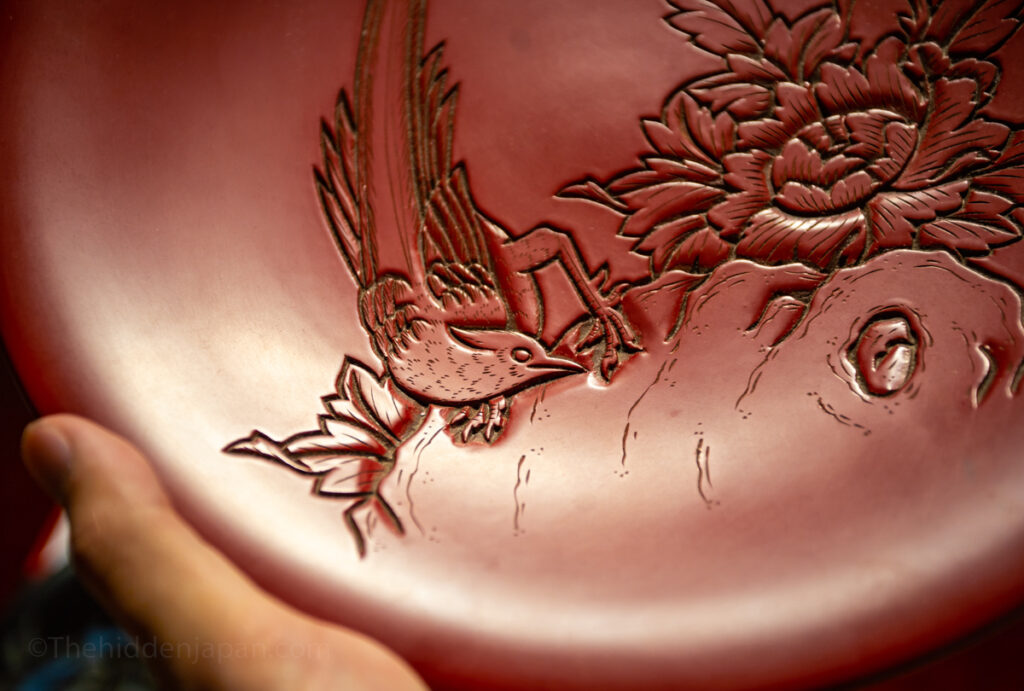
Murakami City
Known for salmon and its charming historical district, Murakami makes a great place to enjoy traditional Japan with a sense of small-town warmth and hospitality.
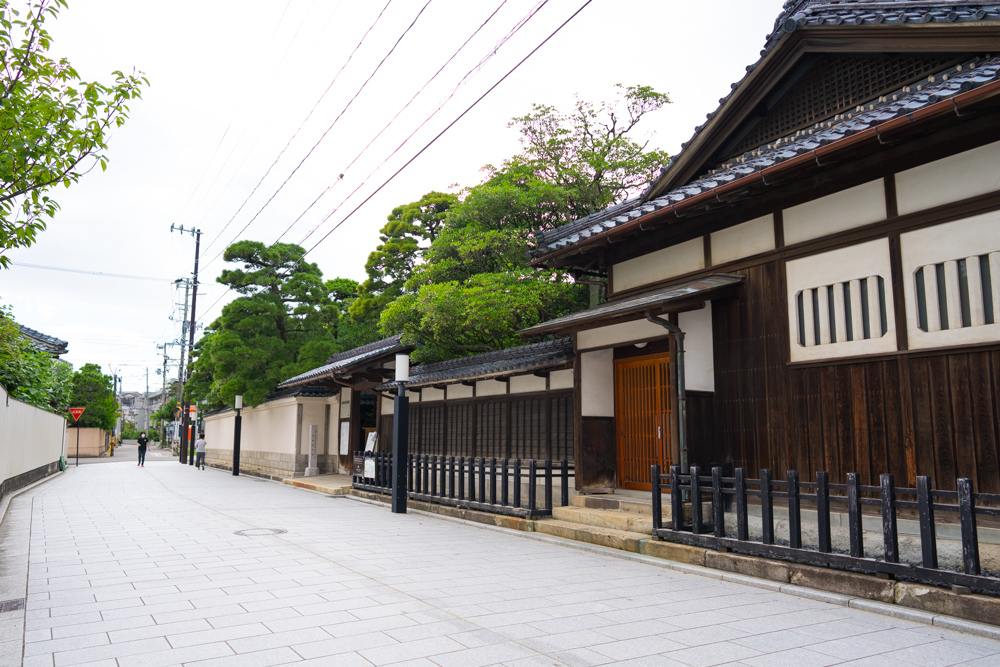
Niigata City, home to a population just shy of one million, is the capital city of Niigata Prefecture. It is situated at the mouth of Japan’s longest river, the Shinano River, where it meets the Sea of Japan in the vast Echigo Plain. It first flourished as a port town, and later became one of the first five ports to open to international trade. Nowadays, the city is home to a substantial number of colleges and trade schools, resulting in a high population of young people and vibrant contemporary culture. Unlike many other major Japanese cities, Niigata isn’t part of the Kanto or Kansai sprawls. The advantages this offers to travelers are that, in addition to the attractions and convenience typical of Japanese cities, Niigata also offers natural beauty, cuisine rich in locally-grown ingredients, and high-class traditional Japanese nightlife that welcomes international visitors.
Much of Niigata City’s legacy is as a propserous port town along the Kitamaebune route, a trade route active during the Edo and Meiji periods. Courting plenty of sailors with coin to spare, nightlife in the city prospered, including ryotei and geisha (called geigi in Niigata) entertainment. Ryotei are exclusive high-class restaurants historically apreciated not only for their fine cuisine and opulent decor, but also for their exclusivity—establishments where high-level business or political rendezvous could take place discreetly. Geigi and ryotei culture lives on in Niigata even now, just on a smaller scale than during its heyday. Locals of certain social status still frequent such establishments, and here in Niigata, international visitors are welcome to indulge as well—most ryotei in the city welcome first-time visitors, and are happy to provide private geigi entertainment.
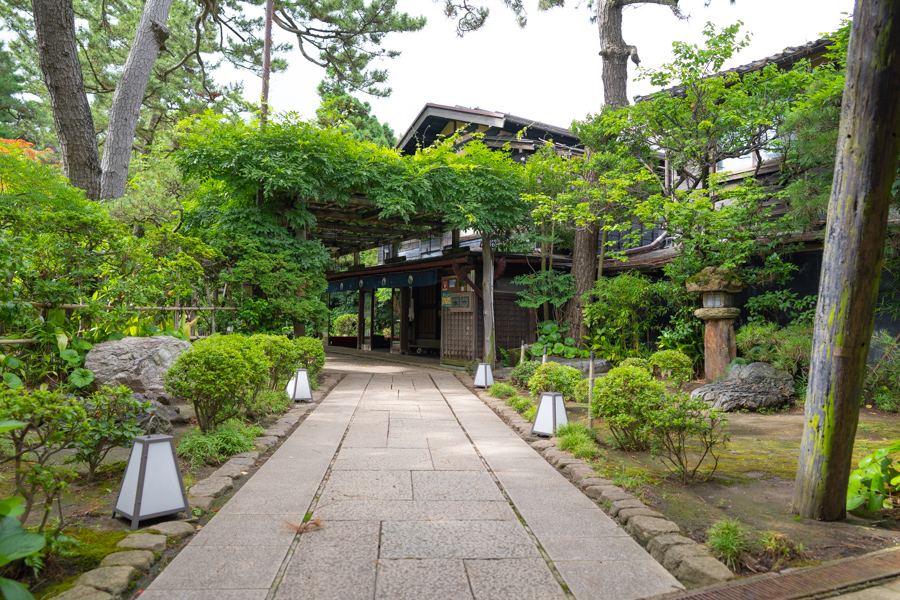
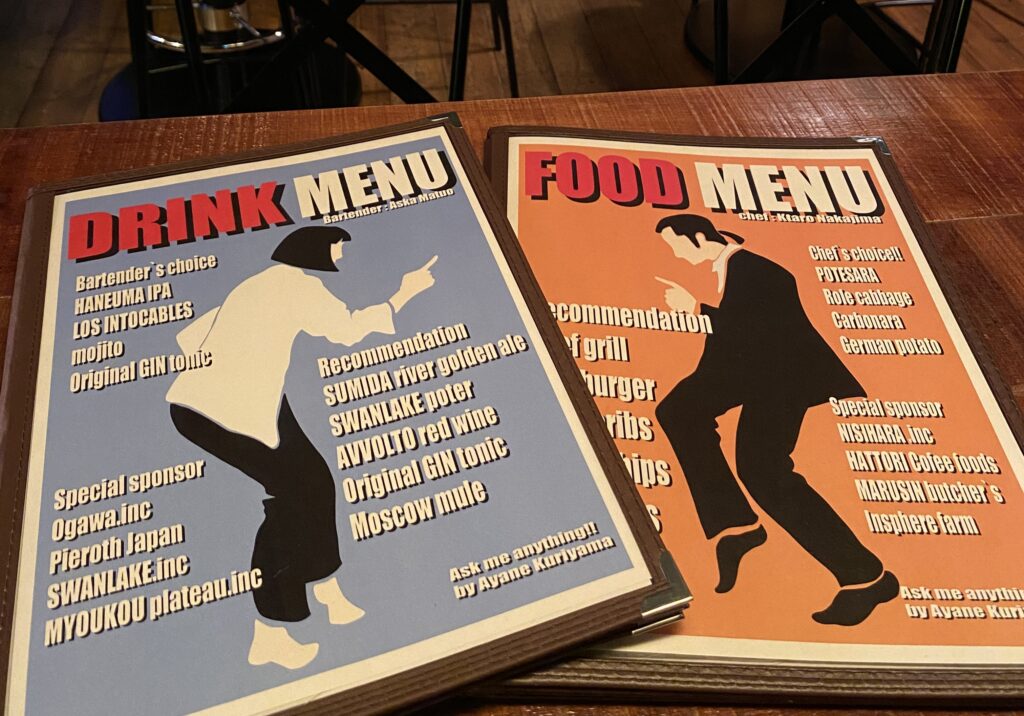
Major Japanese cities are hubs of youth culture, and Niigata is no exception. In fact, thanks to the unusually high number of colleges and vocational schools here, Niigata youth culture is particularly strong. The mainstream hub is the Bandai commercial district; attractions here include department stores and an idol girl group theater. Nearby, the quaint old Furumachi shopping streets are seeing a grassroots revival thanks to the city’s youth—as elderly shopowners retire, young folks have been moving in and putting down their own roots setting up hip eateries, vintage clothing shops, and even a guesthouse inside a renovated 90-year-old dango workshop.
Niigata City is bounded by the ocean to the north and west, and by the basin of the Shinano and Agano Rivers to the south and east. That makes it easy to get out and enjoy nature without even having venture beyond city limits. The seaside boasts swimming beaches and romantic sunsets. Inland, the river basin offers landscapes that transform with the seasons, and protected natural heritage like the Fukushimagata Lagoon, a 193-hectare nature reserve home to seasonal flowers, giant lilypads, migratory birds, and other wildlife.
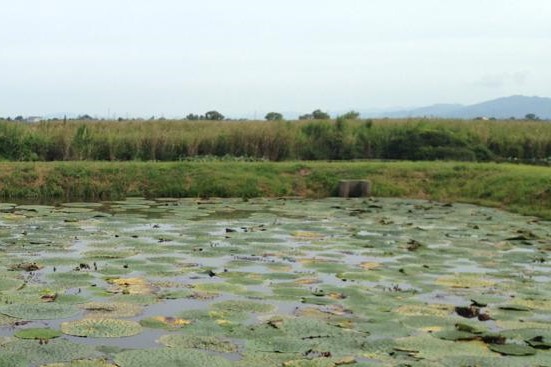
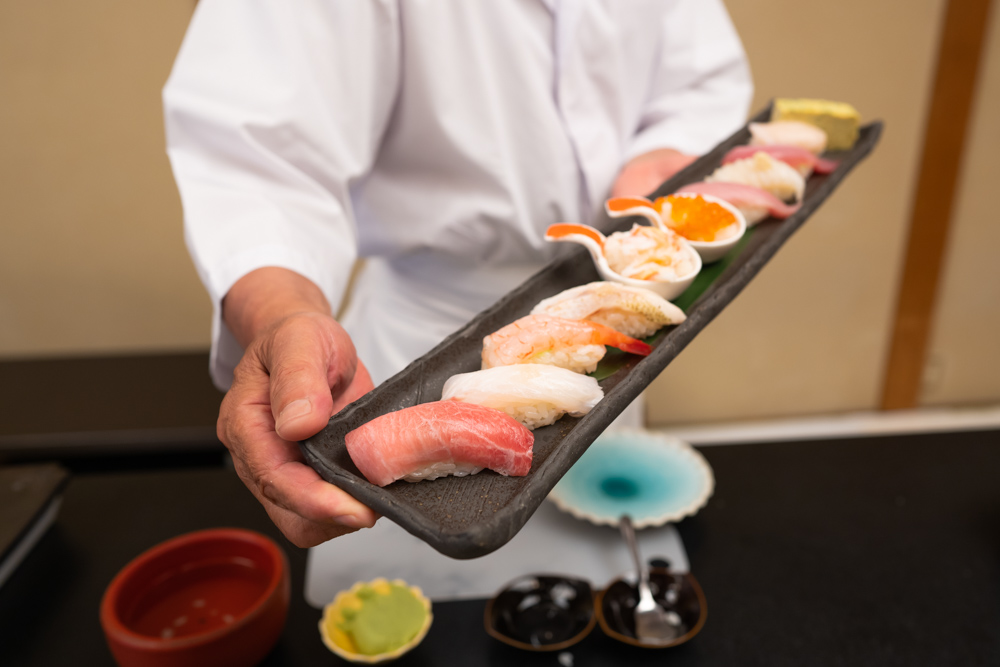
The ocean and river basin aren’t just nice to look at; they also provide culinary bounty that feeds Niigata City. Fish caught in the Sea of Japan off the coast here means that sushi and other seafood delights, like nodoguro aburidon—rice bowls topped with flame-broiled rosy seabass—are available in abundance at affordable prices. Inland, fruit orchards dot the outskirts of the city and rice paddies stretch into the distance. The rice paddies set the stage for farmhouse cafes popular as Sunday lunch destinations for city dwellers, where diners can enjoy locally harvested fare while gazing out at this quintessentially Japanese agricultural landscape.
The rice grown in Niigata is for more than just eating—Niigata is the prefecture home to the greatest number of sake breweries in all of Japan. One sake brewery offering tours and tastings is located in the heart of the city just a short walk from Niigata Station. For an even more convenient sake tasting experience, look no further than Niigata Station itself. Ponshukan, a tasting automat of sorts boasting some one-hundred coin-operated sake dispensers, is located inside Niigata Station. Once you’re ready to stop tasting and do some real drinking, izakaya pubs across the city have fine Niigata sake on offer for cheap.
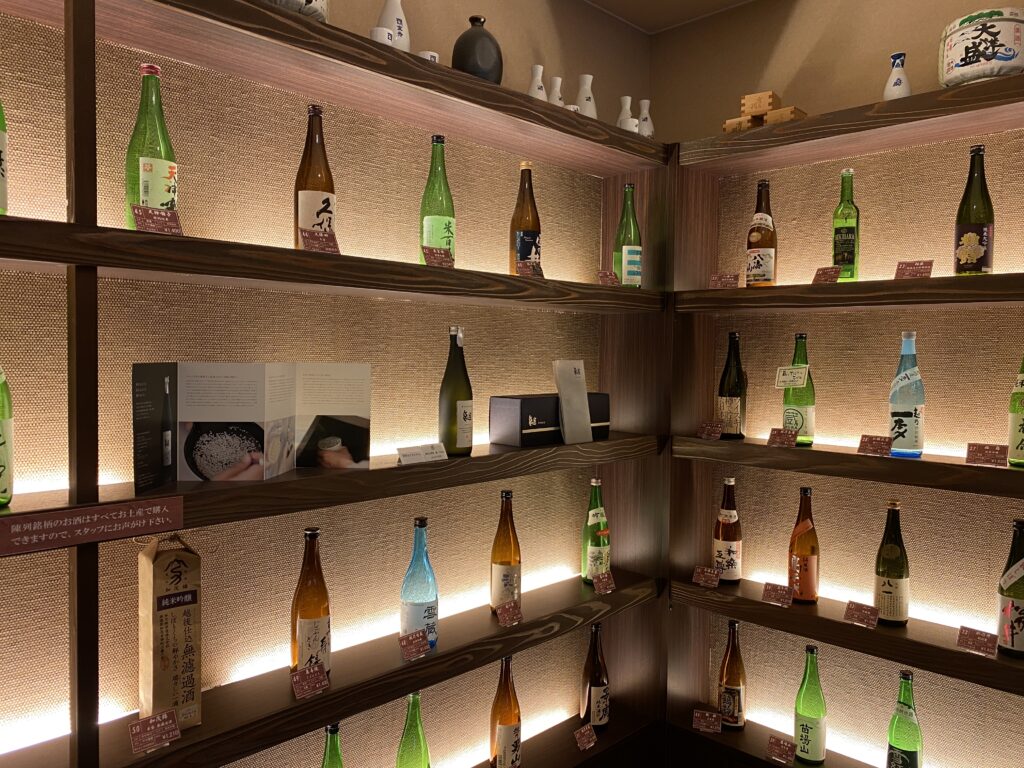
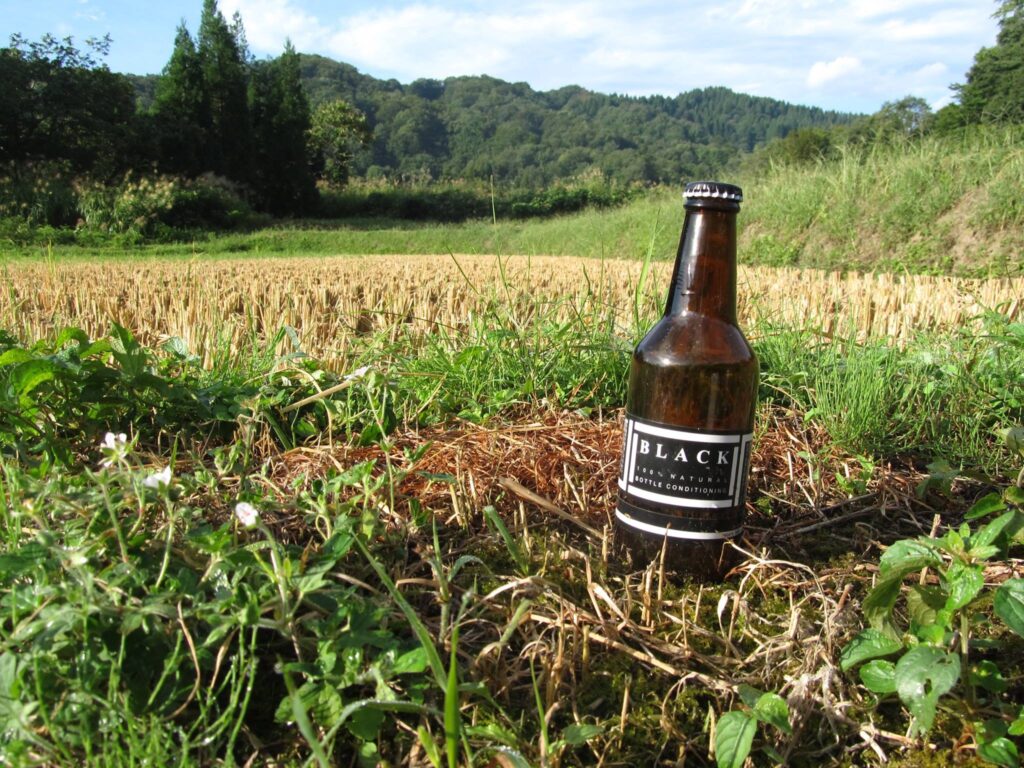
Beyond sake, the city also produces beer and wine. The city is home to a number of craft beer bars and microbreweries. One of the best is Nuttari Brewery, where they brew distinctively Niigata beers in such small batches that they’re available nowhere else but their on-site brewpub. On the southern outskirts of the city, the coastal plains serve as famously fertile grounds for vineyards—so much so that the area has been nicknamed the Niigata Wine Coast. Not only can visitors tour the wineries and do tastings, but some of the wineries here even offer overnight stays.
With all the conveniences of a major Japanese city, plus charms like geigi entertainment and local cuisine and uniquely accessible here, Niigata is a satisfying city to visit, or perhaps even serve as the base for your next Japan vacation.
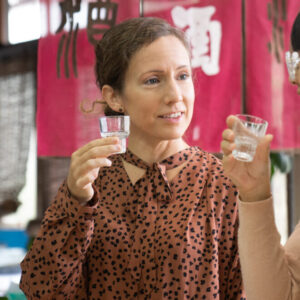

Known for salmon and its charming historical district, Murakami makes a great place to enjoy traditional Japan with a sense of small-town warmth and hospitality.
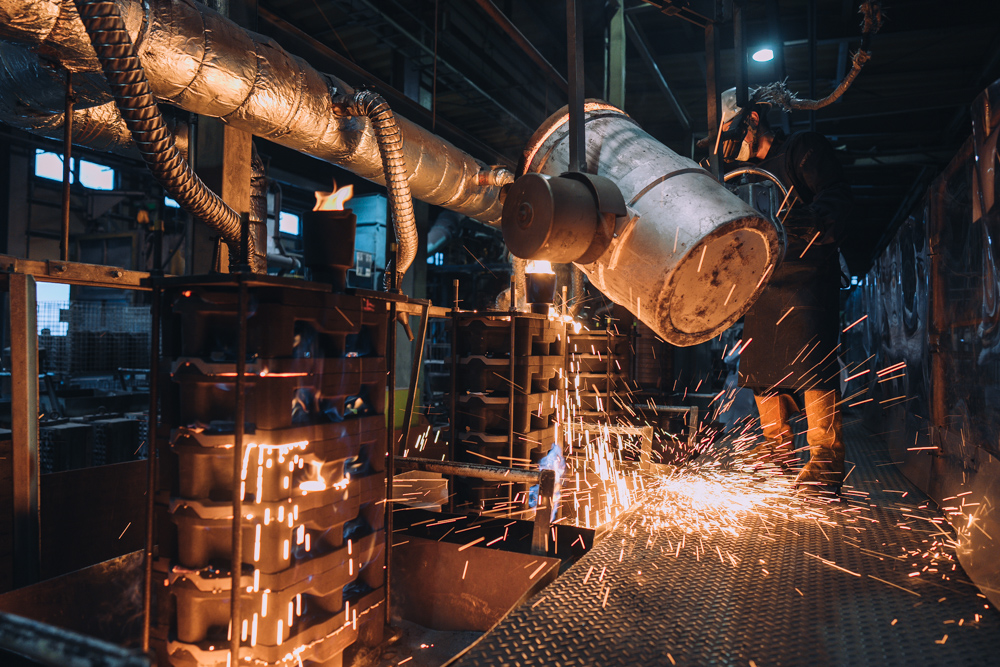
Learn about the Tsubame Sanjo area of Niigata, where approximately 95% of all tableware made in Japan is produced.
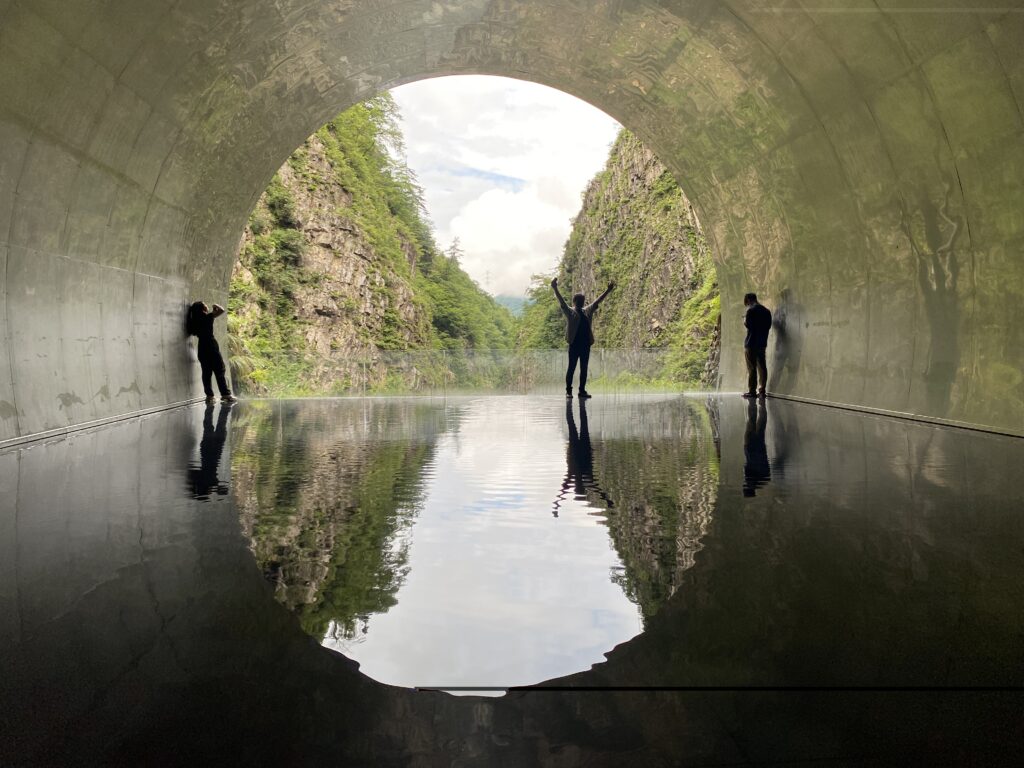
Echigo-Tsumari is home to scenic landscapes, healing hot springs, and one of the most compelling contemporary art destinations in the world.
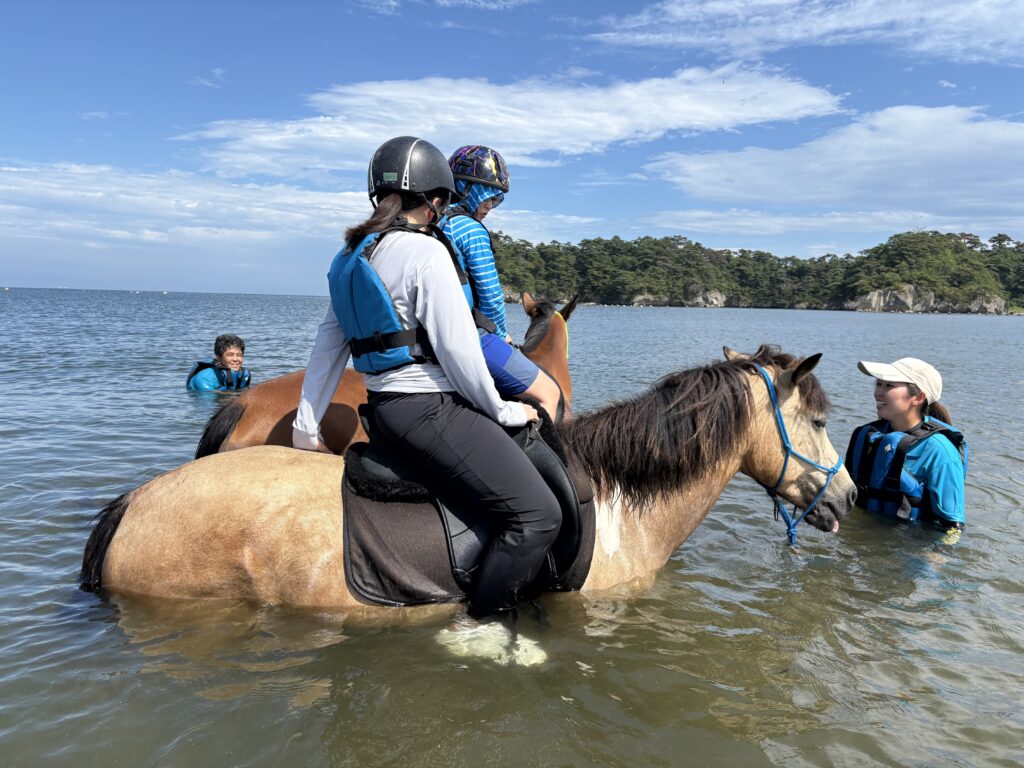
Oku-Matsushima, a scenic spot rivaling Matsushima in both beauty and the freshest seafood, offers seaside horseback riding (including underwater riding during summer only).
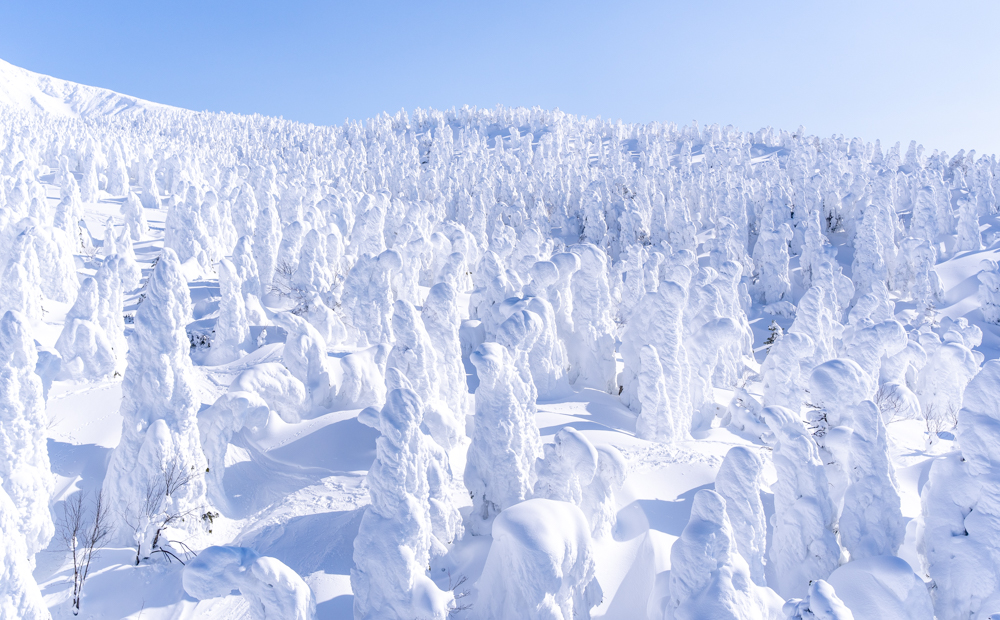
Snow Monsters are synonomous with winter on Mount Zao—read on to find out how to access them, the best times to visit, and more!
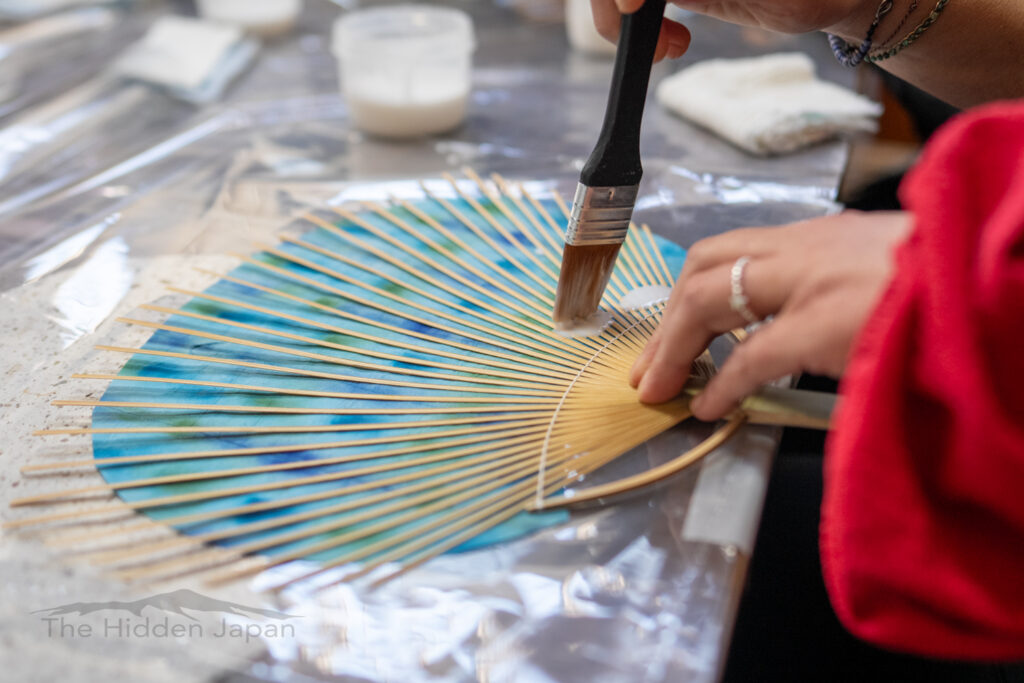
This is an experience of making a fan using Shiroishi washi paper, a traditional product of Shiroishi City that is registered as a “Traditional Craft of Miyagi Prefecture.” Each piece of washi paper is hand-dyed, making it strong and durable, and each one is unique, with a different look.
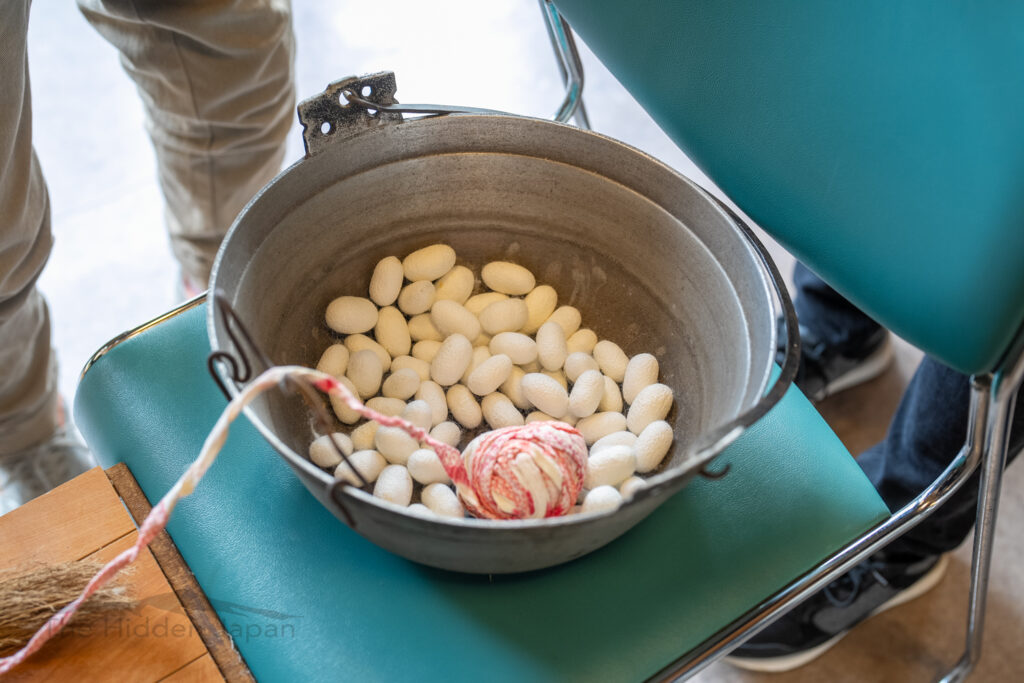
Experience Japan’s traditional sericulture (silkworm farming) in Marumori Town, Miyagi Prefecture, once renowned for a prosperous silk industry. Through exchanges with local farmers and artisans, you can enjoy a variety of hands-on activities related to silkworms and silk.
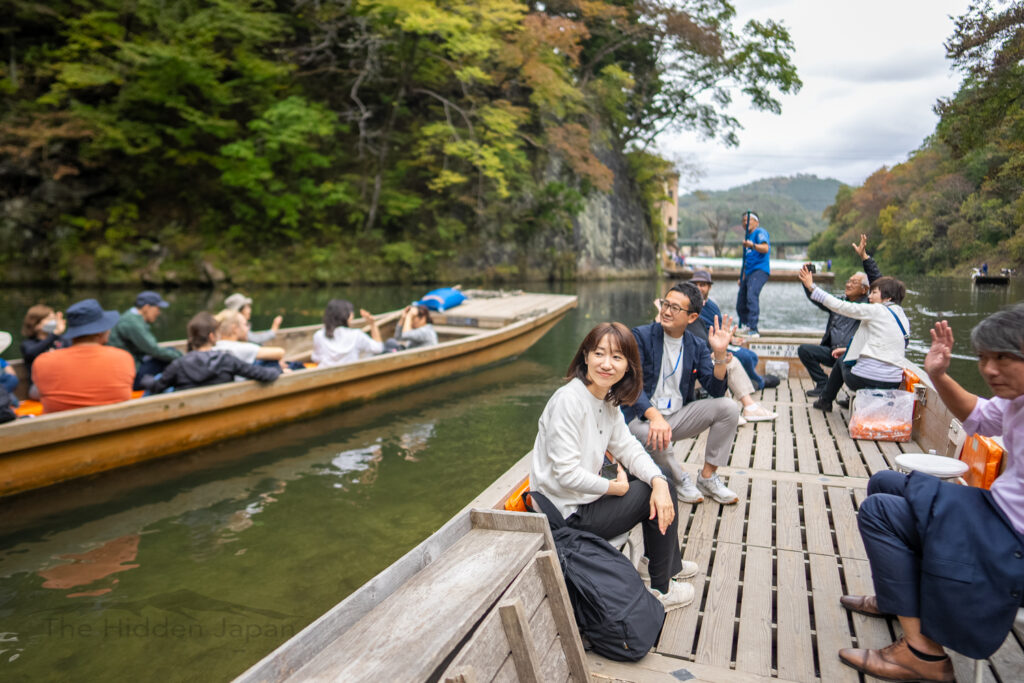
Drift through the Geibikei Gorge, one of the most beautiful places in Japan, in a boat propelled by an oarsman maneuvering it with a single long pole. You may even get the chance to enjoy an “oarsman experience” in which you can try propelling the boat yourself!
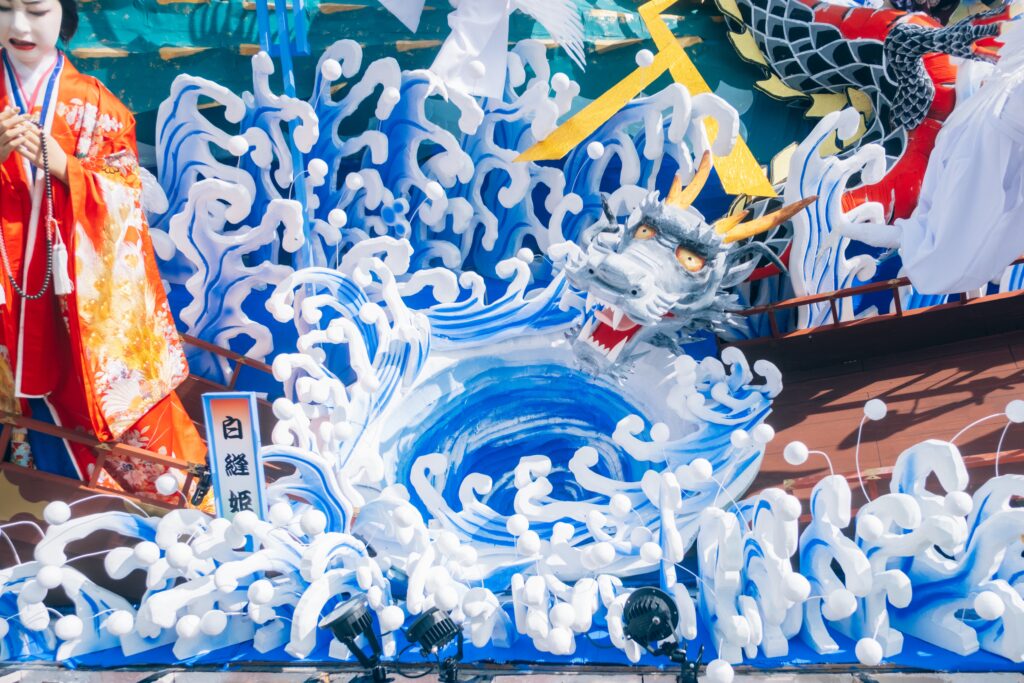
This hands-on experience offers the rare opportunity to help construct the floats which are paraded up and down the streets during the summer Kurikoma Festival.